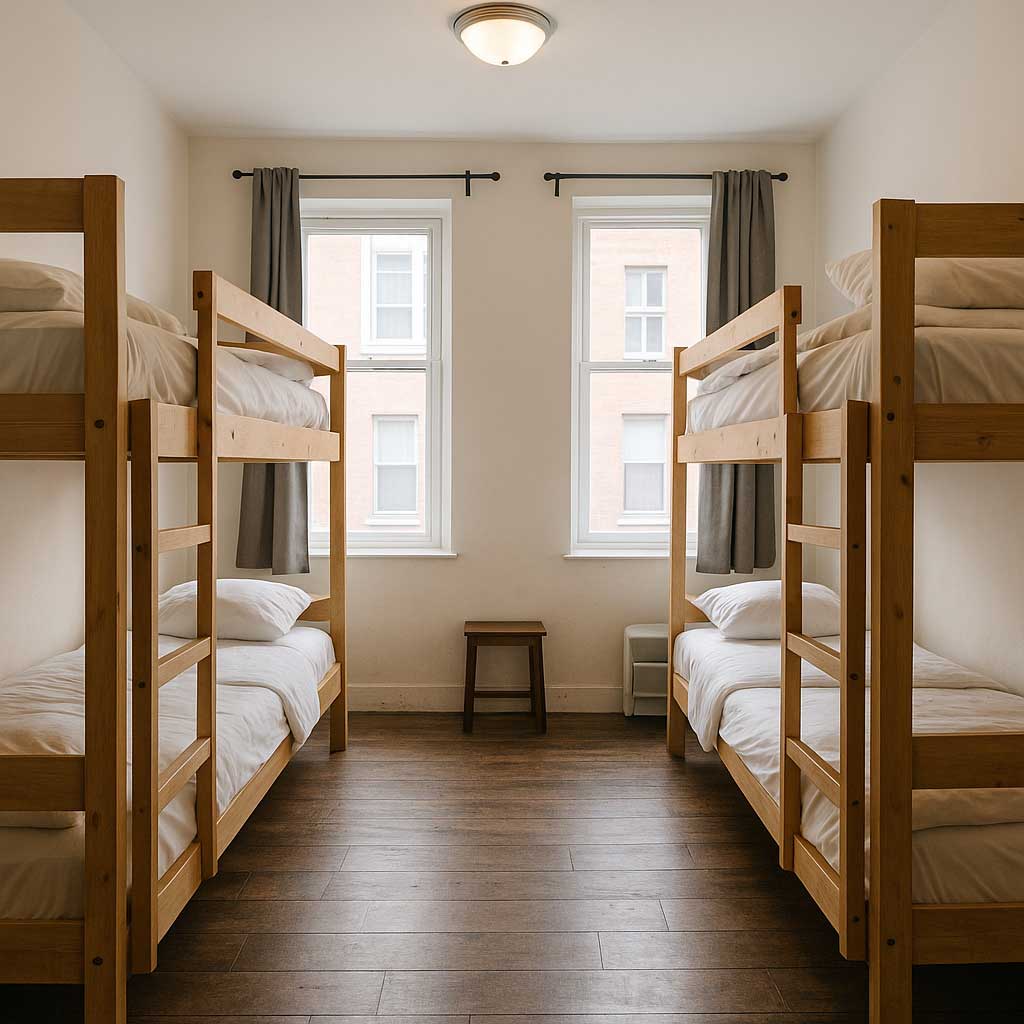What is a Hostel? A Friendly Guide for Hoteliers
 Mika Takahashi
Mika Takahashi Mika Takahashi
Mika TakahashiIf you're a hotelier looking to navigate the exciting world of budget accommodations, getting to know hostels is a smart move. Hostels have grown into a popular part of the hospitality scene, welcoming millions of travelers from all over the globe every year. This guide will walk you through what makes a hostel unique, how they operate, and what you should consider if you want to dive into this lively market.
Simply put, a hostel is a budget-friendly lodging option that mainly features shared dormitory-style rooms filled with bunk beds, often hosting anywhere from 4 to 20 guests in a single room. Unlike traditional hotels that focus on privacy and personalized service, hostels prioritize affordability and creating a social atmosphere where guests can connect. Many hostels also offer private rooms, giving travelers a bit more privacy without losing that communal vibe.
The hostel concept began in early 20th-century Europe as a way to provide safe, affordable places for young travelers and students. Since then, hostels have evolved to welcome a broader crowd—including digital nomads, families, and budget-conscious travelers—branching out far beyond their original youth hostel roots.
Hostels work a bit differently from hotels. Instead of booking an entire room, guests usually reserve a bed, which means multiple travelers share a dormitory. When guests check in, they often receive key cards or codes for both the building and their rooms, and personal lockers are standard to keep belongings secure.
To keep things running smoothly, hostels have house rules like quiet hours and limits on outside visitors. Some hostels, especially party hostels, offer 24/7 reception, while others might have curfews to keep a balance between security and social fun. These policies help maintain a welcoming environment that’s safe and enjoyable for everyone.
| Aspect | Hostels | Hotels |
|---|---|---|
| Accommodation Style | Shared dorms with bunk beds; private rooms optional | Private rooms with en-suite bathrooms |
| Guest Interaction | Social interaction encouraged in common areas | More privacy; limited guest interaction |
| Facilities | Communal kitchens and shared bathrooms | In-room dining, private bathrooms, full services |
| Service Level | Minimal staff; mostly self-service | Full-service staff including concierge, housekeeping |
| Pricing Model | Per-bed pricing, budget-focused | Per-room pricing, ranging from premium to luxury |
| Target Market | Budget travelers, solo travelers, backpackers | Business travelers, families, luxury clientele |
For hoteliers, understanding these differences is key when managing or developing hostels. The focus on social spaces and shared facilities means you’ll need operational strategies that differ from those used in traditional hotels.
Hostels open the door to a booming budget travel market that includes younger travelers, solo adventurers, and digital nomads. Adding hostels to your offerings diversifies your clientele and reduces reliance on traditional hotel guests.
Shared dormitories and fewer personalized services mean lower staffing and maintenance expenses. Communal kitchens and bathrooms keep individual room costs down, letting you offer competitive prices that attract budget-conscious guests.
Hostels thrive on community. Shared spaces and organized events help guests connect, leading to memorable stays and loyal customers. This social vibe sets hostels apart from typical hotels and can be a great marketing angle.
Hostels often find homes in central urban areas, offering travelers affordable stays close to transport hubs and attractions. This convenience is a big draw for guests who want to be in the heart of the action without the hefty hotel price tag.
Sharing rooms means less privacy, which might not appeal to everyone. It’s important to have secure lockers, electronic access systems, and clear house rules to keep guests feeling safe and comfortable.
Party hostels can be lively, but too much noise or unruly behavior can spoil the experience. Striking the right balance between fun and order is crucial to keep all guests happy.
With many guests coming and going, keeping shared spaces spotless is a must. Investing in thorough cleaning routines and staff training helps protect your reputation.
Juggling dorms and private rooms means flexible staffing and processes. Efficient check-ins, housekeeping, and clear communication tailored to hostel life will keep things running smoothly.

Knowing the kinds of hostels out there helps you match your property to the right audience:
Hostels usually price per bed, not per room, which suits solo travelers and groups alike. Using dynamic pricing based on demand, seasons, and events helps maximize occupancy and revenue.
Hostel prices vary widely depending on location and amenities:
Understanding these trends helps you price competitively while appealing to diverse travelers.
Hostels attract a wonderfully diverse crowd, each with their own travel style and reasons for choosing this budget-friendly accommodation. Understanding these traveler types can help hoteliers tailor their services and create a welcoming environment for all.
By recognizing the needs and preferences of these varied travelers, hostels can create tailored experiences that keep guests coming back and sharing their positive stories.
Hostels offer hoteliers a vibrant, growing niche that can diversify your portfolio and attract fresh traveler segments. Success means embracing the unique hostel culture—fostering community while maintaining high standards in safety, cleanliness, and service.
Whether you’re launching a new hostel or adding hostel-style accommodations to your existing property, this dynamic sector offers exciting opportunities to connect with today’s adventurous travelers.